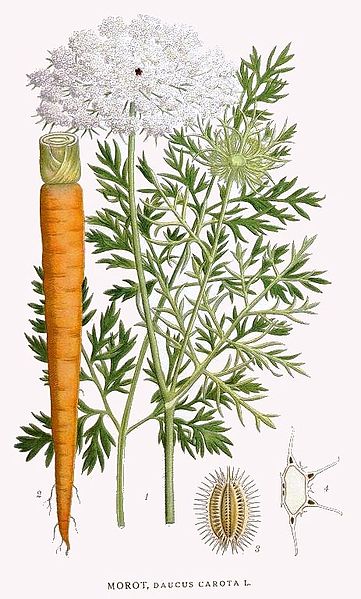The topic is in media again - we waste too much food. But what else could you expect from a consumer?

This morning the Swedish radio reported that 25% of all carrots produced in Sweden are never reach the supermarkets. If they are not the right size and shape, producers throw them away. It is not the first time the topic of food waste is in the media. In 2010 Svenska Dagbladet reported that the supermarkets themselves throw away enormous amounts of food, and in 2009 Dagens Nyheter reported that households do the same. All in all, according to the Swedish radio, a third of all food produced in or imported to Sweden is thrown away (and usually not even composted).
I guess this does not upset Marxists already suspicious of markets. Hardhearted liberals who sees it as a human right to waste food if you find it makes you happier will not raise their eyebrows. The one's who find the story disturbing are either greens, eager to diminish our ecological footprint or blue eyed liberals that see markets as something beautiful, something that allots the best opportunity to each man and each carrot, and leaves nothing as waste. And of course the great majority of people who sees a problem in food scarcity, and wait for market economy to solve it. Silly dreamers.
Imagine a market, anywhere, anytime. Imagine an oriental bazaar in the middle ages, a Swedish mârten in early 20th century or a supermarket in Tokyo. It is the same thing everywhere. A buyer comes armed with money to a seller, and his task is to pick out the best possible product she, or sometimes he, can get for those money. If the seller sells carrots, it is the very essence of buying to pick out the larger and straighter one's, and reject the smaller and quirkier one's.
The fact that those small and quirky carrots might get sold in the oriental bazaar is just because there wasn't enough of the big and straight one's. In modern Sweden there is no such scarcity, and logically they get rejected. We have PR agencies and social sciences predicting consumers behavior, and supermarkets know very well that a quirky carrot will not be sold, and might even destroy the whole impression of their vegetable selling area, reducing other sales as well.
Farmers also know that, so why would they bother to send the carrot to a supermarket that will not manage to sell it? In this society it makes more sense to aim at returning food waste as compost to the land, than to try to stop the waste, that is the very symbol of wealth.
Is it a problem? Yes it is. 925 million people go to bed hungry already today so there is use for all this food that is thrown away. Food scarcity is ever more likely as populations grow and agriculture deteriorates due to climate change and unwise use of land. And we are heavily over-using our ecological resources. Using land for resource intensive agriculture and then trow away the products is politically acceptable to some of us, but suicide in the real world.
Since the problem is not what we do wrong, but to our correct and logical behavior as consumers in the market, the clue to solving it is to let people be producers, not just consumers. A consumer's job is to choose between carrots, but a producer would rather see the amount of work that was invested in all of them. For the consumer the carrot's value is relative, for the producer it is absolute. And since the world does, actually, depend on biological and physical facts, a absolute world view makes more sense than a relative one. Whereas the consumer would would choose the catastrophe that brings the most bang for his buck, a producer mind would spend the money to avert a catastrophe.
The problem is consumerism itself. You can not expect a consumer to be wary about resources. But who said that we all must be consumers? Inside we are all artists and gardeners. And that is what the world requires of us to be. Let's stop pretending we are something else.
1 comment:
Wow, there is a lot of useful data above!
Post a Comment